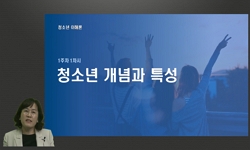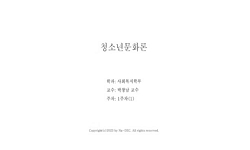This study investigates the effects of mental health and daily oral habits on temporomandibular joint symptoms. The study was conducted from September 1 to 30, 2019, enrolling a total of 402 young adults. We determined that mental health levels of anx...
http://chineseinput.net/에서 pinyin(병음)방식으로 중국어를 변환할 수 있습니다.
변환된 중국어를 복사하여 사용하시면 됩니다.
- 中文 을 입력하시려면 zhongwen을 입력하시고 space를누르시면됩니다.
- 北京 을 입력하시려면 beijing을 입력하시고 space를 누르시면 됩니다.

일부 청년기 성인의 정신건강과 구강습관이 턱관절 증상에 미치는 영향 = Effects of Mental Health Levels and Oral habits on Temporomandibular Joint Symptom in Some Adolescents
한글로보기부가정보
다국어 초록 (Multilingual Abstract)
This study investigates the effects of mental health and daily oral habits on temporomandibular joint symptoms. The study was conducted from September 1 to 30, 2019, enrolling a total of 402 young adults. We determined that mental health levels of anxiety, depression, and social maladjustment are significantly different, depending on life satisfaction (p<0.001), subjective health status (p<0.001), and trauma (p<0.01). Treating jaw joints exerted a significant difference in social maladjustment (p<0.05). Temporomandibular joint symptoms are significantly higher among women (p<0.05), drinkers (p<0.01), trauma (p<0.01) and jaw joint treatment patients (p<0.001). Mental health levels (p<0.001), oral habits (p<0.001), and temporomandibular joint symptoms (p<0.001) are all positively correlated. In addition, oral hygiene has the greatest influence on temporomandibular joint symptoms of trauma. Furthermore, factors experienced during treatment of the jaw joints also affect the temporomandibular joint symptoms. We conclude that it is imperative to improve oral health and malpractice in treating jaw joint disorders, and also develop a program that effectively improves jaw joint health, by combining mental health counseling and daily lifestyle improvements.
국문 초록 (Abstract)
본 연구는 일부 성인의 정신건강 수준, 평소 구강 습관이 턱관절 증상에 미치는 영향을 살펴보고자 시행하였다. 연구 대상은 2019년 9월 1일부터 30일까지 청년기 성인을 대상으로 설문 조사를...
본 연구는 일부 성인의 정신건강 수준, 평소 구강 습관이 턱관절 증상에 미치는 영향을 살펴보고자 시행하였다. 연구 대상은 2019년 9월 1일부터 30일까지 청년기 성인을 대상으로 설문 조사를 시행하였으며 총 402명을 대상으로 하였다. 그 결과 불안, 우울, 사회적 부적응 영역의 정신건강 수준은 삶의 만족도(p<0.001)와 주관적 건강 상태(p<0.001), 외상 경험(p<0.01)과 유의한 차이를 나타냈다. 턱관절 치료 경험자는 사회적 부적응 영역(p<0.05)의 정신건강 수준에서 유의한 차이를 나타냈다. 턱관절 증상은 여성(p<0.05), 음주자(p<0.01), 외상(p<0.01)과 턱관절 치료 경험자(p<0.001)에서 높게 나타났으며, 통계적으로 유의한 차이를 나타냈다. 정신건강 수준(p<0.001), 구강 습관(p<0.001)과 턱관절 증상(p<0.001)은 모두 양의 상관성을 나타냈다. 구강 습관(p<0.001)이 턱관절 증상에 가장 큰 영향을 미쳤으며 외상(p<0.05)과 턱관절 치료 경험(p<0.001)도 턱관절 증상에 영향을 미치는 것으로 나타났다. 이상의 결과로 볼 때 턱관절 증상을 치료 시 구강 습관을 개선하는 것이 가장 중요하며, 정신건강 상담치료와 평소 생활습관의 개선 노력을 병행하여 턱관절 건강을 효과적으로 개선하고 적용할 수 있는 프로그램의 개발이 필요할 것으로 생각된다.
참고문헌 (Reference)
1 정기호, "한국 초?중?고등학생들의 측두하악장애 유병상태와 악안면외상과의 관련성" 대한예방치과·구강보건학회 27 (27): 249-264, 2003
2 최영찬, "측두하악장애의 진단 및 치료" 대한턱관절교합학회 25 (25): 319-328, 2009
3 이정화, "일부지역 근로자의 직무스트레스와 측두하악장애에 관한 연구" 한국치위생과학회 9 (9): 9-15, 2009
4 최혜정, "일부 성인의 정신건강수준, 평소 생활습관 및 턱관절장애 자각증상과의 관련성" 한국치위생학회 18 (18): 763-770, 2018
5 조미숙, "일부 고등학생들의 자아존중감과 턱관절 기능장애의 관련성" 한국치위생학회 16 (16): 111-120, 2016
6 최미혜, "의료기관 근로자와 비의료기관 근로자의 구강보건행태 비교연구" 대한예방치과·구강보건학회 33 (33): 552-563, 2009
7 한덕웅, "스트레스 사건에 관한 자기 노출, 반복 생각 및 정서 경험이 신체 건강에 미치는 영향" 한국건강심리학회 9 (9): 99-130, 2004
8 김수경, "성인의 턱관절장애 자각증상에 영향을 미치는 요인" 한국치위생학회 17 (17): 601-611, 2017
9 김진욱, "보건계열 대학생의 스트레스가 신체적 증상 및 턱관절증상에 미치는 영향" 한국산학기술학회 14 (14): 4919-4926, 2013
10 홍민희, "근로자의 직무스트레스가 구강 건조감, 턱관절 증상 및 구강증상에 미치는 영향" 한국치위생학회 13 (13): 136-145, 2013
1 정기호, "한국 초?중?고등학생들의 측두하악장애 유병상태와 악안면외상과의 관련성" 대한예방치과·구강보건학회 27 (27): 249-264, 2003
2 최영찬, "측두하악장애의 진단 및 치료" 대한턱관절교합학회 25 (25): 319-328, 2009
3 이정화, "일부지역 근로자의 직무스트레스와 측두하악장애에 관한 연구" 한국치위생과학회 9 (9): 9-15, 2009
4 최혜정, "일부 성인의 정신건강수준, 평소 생활습관 및 턱관절장애 자각증상과의 관련성" 한국치위생학회 18 (18): 763-770, 2018
5 조미숙, "일부 고등학생들의 자아존중감과 턱관절 기능장애의 관련성" 한국치위생학회 16 (16): 111-120, 2016
6 최미혜, "의료기관 근로자와 비의료기관 근로자의 구강보건행태 비교연구" 대한예방치과·구강보건학회 33 (33): 552-563, 2009
7 한덕웅, "스트레스 사건에 관한 자기 노출, 반복 생각 및 정서 경험이 신체 건강에 미치는 영향" 한국건강심리학회 9 (9): 99-130, 2004
8 김수경, "성인의 턱관절장애 자각증상에 영향을 미치는 요인" 한국치위생학회 17 (17): 601-611, 2017
9 김진욱, "보건계열 대학생의 스트레스가 신체적 증상 및 턱관절증상에 미치는 영향" 한국산학기술학회 14 (14): 4919-4926, 2013
10 홍민희, "근로자의 직무스트레스가 구강 건조감, 턱관절 증상 및 구강증상에 미치는 영향" 한국치위생학회 13 (13): 136-145, 2013
11 M. W. Kim, "The relationship between stomatognathic habit and temporomandibular joint dysfunction" 7 (7): 295-310, 2000
12 S. I. Shin, "The Validity and Reliability of the Korean Version of the General Health Questionnaire I" 46 (46): 210-235, 2001
13 W. K. Soberg, "Temporomandibular joint pain and dysfunction : A clinical study of emotional and occlusal components" 28 (28): 412-422, 1972
14 C. McNeill, "Temporomandibular disorders guideline for evaluation, diagnosis and management" Chicago Quintessene Publishing Co 19-21, 1993
15 G. A. Zarb, "Temporomandibular disorders : osteoarthritis" 13 (13): 295-306, 1999
16 H. F. Wang, "Stress, Coping, and Psychological Health of Vocational High School Nursing Students Associated With a Competitive Entrance Exam" 13 (13): 106-116, 2005
17 오재탁, "RDC/TMD를 이용한 측두하악장애의 특징에 관한 연구" 대한안면통증∙구강내과학회 29 (29): 177-185, 2004
18 R. E. Moulton, "Psychiatric considerations in maxillofacial pain" 51 (51): 408-414, 1995
19 N. Mobilio, "Prevalence of self-reported symptoms related to temporomandibular disorders in an Italian population" 38 (38): 884-890, 2011
20 S. M. Hong, "Oral medicine for the dental hygienist" DaehanNarae; Publishing 153-161, 2014
21 D. M. . Laskin, "Etiology ofthepain dysfunction syndrome" 79 (79): 147-153, 1969
22 A. P. S. Manfredi, "Environmental stress and temporomandibular disorder(TMD)among members of a public university in Brazil" 5 (5): 1074-1078, 2006
23 H. A. Yoo, "Effect on explantion of pathogenesis and stress management as primary care of TMJ disorder" 28 (28): 358-363, 2002
24 P. Jeffrey P, "Differential diagnosis of temporomandibular disorders and other orofacial pain disorders" 55 (55): 105-120, 2011
25 D. Goldberg, "A User's Guide to the General Health Questionnaire"
26 I. A. Kim, "A Study on the Effects of Psychosocial stress on Temporomandibular Disorders" Dankook University 2012
27 홍민희, "20-30대 일부 성인의 스트레스, 구강악습관 및 턱관절 증상의 연관성" 한국치위생학회 14 (14): 739-746, 2014
동일학술지(권/호) 다른 논문
-
- 한국산학기술학회
- 박재홍
- 2020
- KCI등재
-
- 한국산학기술학회
- 김형우
- 2020
- KCI등재
-
친환경 산악철도 매립형 궤도의 선로전환기 및 히팅장치 개발
- 한국산학기술학회
- 서승일
- 2020
- KCI등재
-
MF-TDMA DAMA 위성통신 시스템에서의 자원할당정보 정렬 알고리즘 가변 선택기법 연구
- 한국산학기술학회
- 박남형
- 2020
- KCI등재
분석정보
인용정보 인용지수 설명보기
학술지 이력
| 연월일 | 이력구분 | 이력상세 | 등재구분 |
|---|---|---|---|
| 2026 | 평가예정 | 재인증평가 신청대상 (재인증) | |
| 2020-01-01 | 평가 | 등재학술지 유지 (재인증) |  |
| 2017-07-01 | 평가 | 등재후보로 하락(현장점검) (기타) |  |
| 2017-07-01 | 평가 | 등재학술지 선정 (계속평가) |  |
| 2015-01-01 | 평가 | 등재학술지 유지 (등재유지) |  |
| 2011-01-01 | 평가 | 등재학술지 유지 (등재유지) |  |
| 2008-01-01 | 평가 | 등재학술지 선정 (등재후보2차) |  |
| 2007-08-28 | 학술지등록 | 한글명 : 한국산학기술학회논문지외국어명 : Journal of Korea Academia-Industrial cooperation Society |  |
| 2007-07-06 | 학회명변경 | 영문명 : The Korean Academic Inderstrial Society -> The Korea Academia-Industrial cooperation Society |  |
| 2007-01-01 | 평가 | 등재후보 1차 PASS (등재후보1차) |  |
| 2005-01-01 | 평가 | 등재후보학술지 선정 (신규평가) |  |
학술지 인용정보
| 기준연도 | WOS-KCI 통합IF(2년) | KCIF(2년) | KCIF(3년) |
|---|---|---|---|
| 2016 | 0.68 | 0.68 | 0.68 |
| KCIF(4년) | KCIF(5년) | 중심성지수(3년) | 즉시성지수 |
| 0.66 | 0.61 | 0.842 | 0.23 |




 ScienceON
ScienceON DBpia
DBpia






